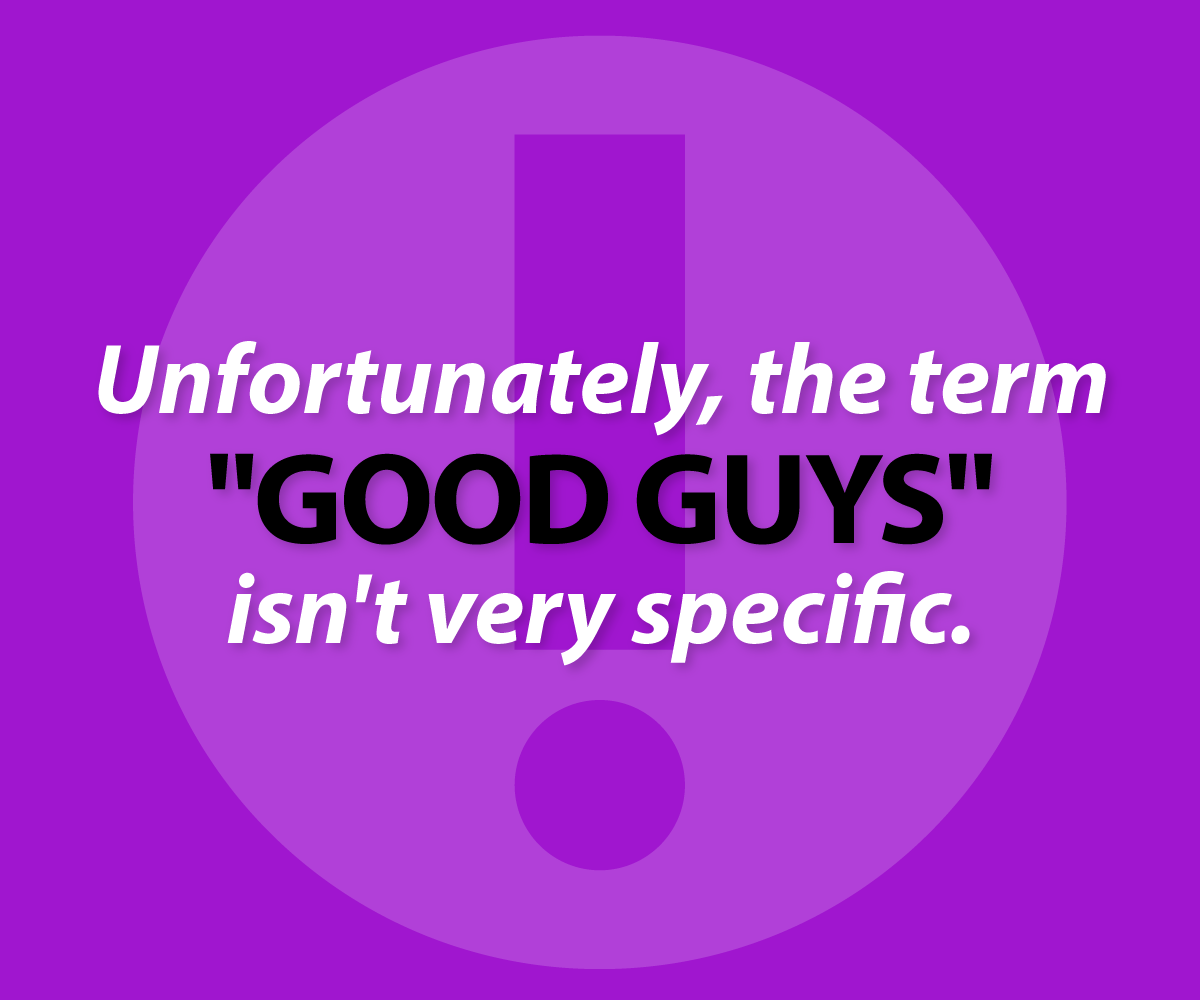
What do you mean by “the good guys?”
Who are “the good guys?” How do you know if someone is good? It might be even more difficult to be able to say that about a company.
We know that people like to support companies and organizations that make them feel good. They want to know they’re doing the right then when they buy from you.
For a company, that means being known for supporting a cause – such as improving education, or protecting the environment – directly translates to consumer interest in your products and services.
For those companies that support a cause, it should be easy to say, “yeah, we’re the good guys.”
Unfortunately, the term “good guys” isn’t very specific. That may be why there are more than a few names for these types of companies. So many, in fact, that the average person has no idea what they actually mean.
So here’s a quick reference guide for a few different terms, labels, and categories that most people think of as “the good guys”:
Benefit Corporations
While most corporations seem to be focused on profits above all else, there are companies that embrace a mission. Benefit Corporations (aka B Corps) may be the best known type of for-profit companies that also want to address social, environmental and economic concerns as well.
I also learned that a regular C corp can become a benefit corporation simply by changing their corporate bylaws – assuming they are located in the 35 states that recognize this classification. There are also groups that will certify that the company actually does what they say – even if not every state that recognizes benefit corporations actually requires that certification.
B Lab is probably the best known certification group. They not only requires a rigorous verification process but also provide a B Corp website icon that links to each company’s report.
(Credit unions might want to note that companies trying to qualify as a B Corp actually get more qualification points if they bank at a CU or a certified bank.)
Conscious Capitalism
Conscious Capitalism is more of a philosophy than an organizational structure, although they do have an actual organization. Like B Corps, its proponents believe ethical businesses should serve the interests of everyone, not just management and shareholders. They also follow the concept of a Triple Bottom Line (People, Planet, Profit).
Social Enterprise
A Social Enterprise is also not a legal entity, and also more of an ideological approach. Think of it as another hybrid (the social mission of a nonprofit combined with a market-driven business), that also has an alliance.
Credit Unions
Credit unions are financial institutions that are member-owned, not-for-profit cooperatives, that operate on the principle of people helping people. I’ve included them on this list because we have worked with CUs for over 20 years, so we know they belong even if way too many people still don’t know much about them.
Unfortunately, CUs are notoriously bad at promoting themselves in this way. They mostly just assume people know what they do and how they help their members.
But they’re not alone. Nowadays, telling people what you stand for might be one of the most important things you can do.
This is not meant to be an exclusive list. Do you feel like we missed an important group? Let us know.
- It’s hard not to get caught up in a buzz that surrounds you. - April 9, 2024
- Turn your staff into an Idea Factory. - February 27, 2024
- Move with the future or get left behind - February 6, 2024
